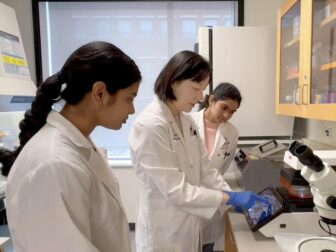Ying Liu, MD, PhD

Tiny Packages, Big Clues: Exploring Retinal Cell-Derived Particles for Early Detection and Treatment of Vision Loss
Summary
Retinal degeneration is a group of eye diseases that gradually damage the retina, the light-sensing layer at the back of the eye that allows us to see. This damage can cause severe vision loss or even blindness. Unfortunately, these diseases are often not detected until vision loss has occurred, and no effective treatments exist. This is mainly because we lack good tools for catching the disease early and do not fully understand how retina cells interact as the disease develops. To address this, we are studying tiny particles called extracellular vesicles (EVs) from diseased retinas. These EVs can act like tiny packages, carrying early warning signs and helping us understand how retina cells communicate during disease. In our research, we grow patient-derived stem cells into mini retinas in a dish to mimic disease. We then study the “EV packages” the retina cells send out, focusing on their ID tags (surface markers), cargo (disease-related molecules), and how they travel between cells (delivery mechanisms). If successful, this study could open the door to earlier diagnosis and new ways to slow or rescue vision loss in people with retinal degeneration.
Watch a Q&A with Ying
The PhRMA Foundation award recognizes the potential of my work in developing novel extracellular vesicle-based diagnostics and therapies for retinal degeneration. This funding provides critical resources to advance my research and drive future breakthroughs to benefit patients.

